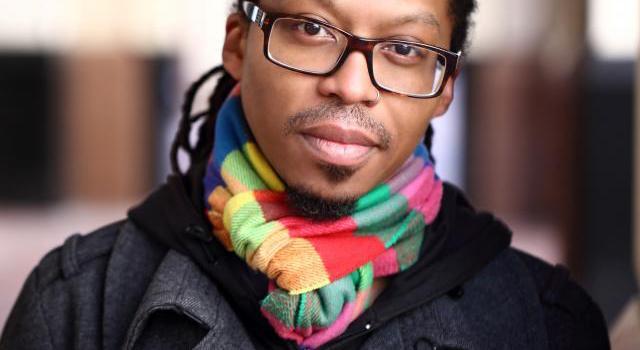Introducing Visiting Assistant Professor of Creative and Fiction Writing John Howard

Hampshire College is pleased to welcome a substantial cohort of new professors to campus to support its growing enrollment and fall class.
Before joining the faculty at Hampshire, Visiting Assistant Professor of Creative and Fiction Writing John Howard taught a variety of writing disciplines and related courses at Babson College, Grand Valley State University, Hope College, and Siena Heights University.
Howard has published short pieces of creative writing in numerous literary journals (poetry as John T. Howard; prose as Thomas Maya, to honor his matrilineal heritage) and is currently at work on four books of varying genres: a novel, Monsters We Then Made, set on Long Island in 1993, narrated by an 11-year-old Colombian boy who tells stories of his family’s struggles as they manage to overcome financial ruin and racial discrimination; a collection of stories titled Nosotros, which examines myriad experiences of Latinidad; a poetry volume, Damage + Devotion, exploring the relationship between trauma and faith; and a translation of novelist Rafael Chaparro Madiedo’s Opio en las nubes (Opium in the Clouds).
Howard holds an A.A.S in illustration from the Fashion Institute of Technology (F.I.T.); a B.F.A. in toy design, also from F.I.T.; a B.A. in literature from SUNY Purchase; and an M.F.A. in creative writing from Indiana University. For a time, he was a toy designer, and says he greatly appreciates the visual arts. “Students in my creative writing classes should not find themselves surprised to engage with drawings, paintings, sculptures, or other means of artistic production, as I’ve become a writer who is always seeking to explore the connections found among all creative endeavors,” he says.
What are you passionate about when it comes to this work?
I’m energetically engaged in the craft-driven work needed to create poetry and prose, one page of work at a time. By writing a single poem, a single short story, or a single chapter in a longer work, I know that I’m assisting with the cultural production that’s necessary for keeping the language arts alive and well. I know this production is needed not simply for artistic merit or personal pleasure, but because each work of art has the power to make a difference in our world. I write poetry and prose that wrestle with complicated issues because I hope the work will help to remedy or address issues of growing concern in our world.
I believe that writing, creatively and analytically, is a necessary pursuit that helps all individuals to become more active, engaged, and thoughtful citizens of the world. I’m continuously inspired by the students I work with; and my hope, for my classrooms, is that I likewise inspire younger writers to take up their causes through various modes available in the language arts.
What are you looking forward to at Hampshire?
I’m seeking a community learning experience where students are eager to explore the full potential available to all through the language arts. I want to develop and deliver challenging creative writing courses that push my students (and me) to embrace the hard work, courage, and tenacity needed to write poetry and prose that matter.
I want to fuel my dedication to writing poetry and prose through daily discussions about craft and creativity. I want to read, to write, and to study more alongside my students, and I’m hoping to find community connections with students who are equally as passionate about reading, writing, and studying craft.
How do you hope to engage with our new curricular model?
I’m designing coursework that explores the Latinx short story through the lenses of the In/Justice Learning Collaborative and Hampshire’s race and power throughline. This hybrid literature and creative writing course will enable students to investigate the racial and political motivations for adopting or eschewing terms such as Hispanic, Latino, Latina, and Latinx.
Through such an exploration, our community of readers and writers will come to better understand the myriad of perspectives found in the language arts currently being produced by poets and prose writers with cultural connections to Latin American countries. We will read the Latinx short story as an artistic statement that can be utilized to address, combat, or ignore a growing shift to normalize xenophobia and ideologies of white supremacy in the 21st century.



